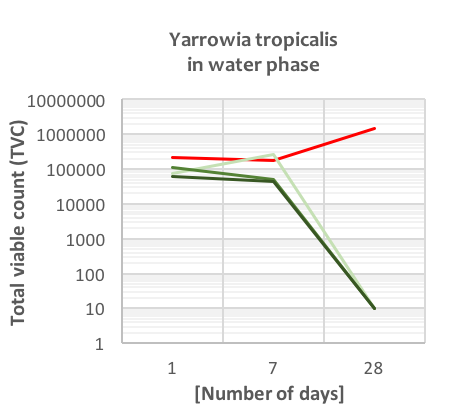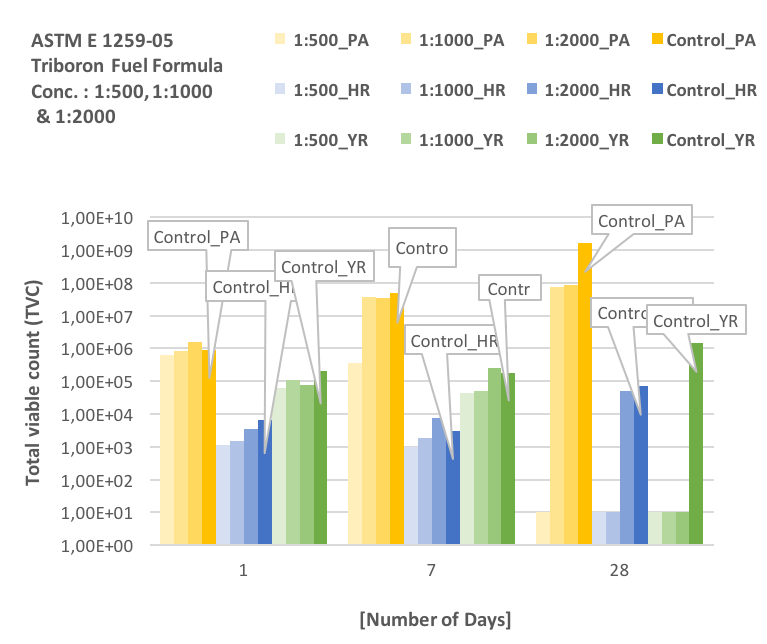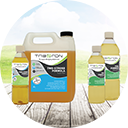Tests & Validation
Over 10 million operational hours in harsh racing environments, everyday use and laboratories using state-of-the-art AVL equipment have verified that Triboron products have a proven ability to reduce friction, save fuel and contribute to anti-bacterial control. Triboron products are also determined to be safe for use in both new and used applications, without any negative impact on engines, emission control systems or machines.
Our solid long-term quality verification is the base for Triboron International’s guarantee, which offers financial compensation to the user in the unlikely event of an operational malfunction that is caused by our products.
Friction Reduction
Ångströms Tribomaterialgrupp vid universitetet i Uppsala har genomfört friktionstester i laboratoriemiljö med fokus på effekten av upprepad besprutning av Triboronteknologin på en metallyta.
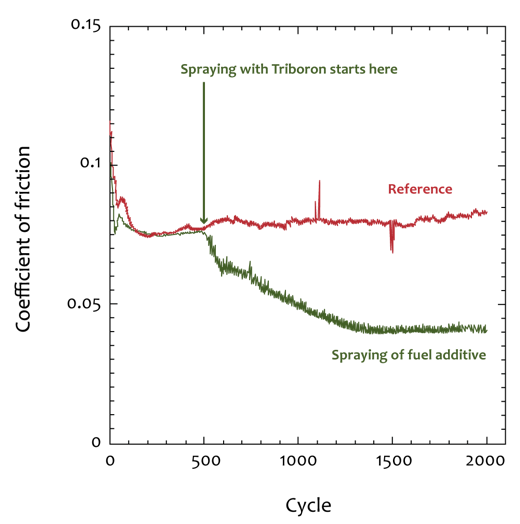
Fuel Consumption: Cars
An independent car testing company has made extensive road tests in modern cars of various sizes and models, with and without Triboron. Cars with Triboron in the fuel had an average reduction of fuel consumption with 3-5% compared to cars driven without Triboron.
Another test using state-of-the-art AVL equipment in the advanced laboratory NEVS/GM resulted in a 3% reduction of fuel and CO2 emissions with Triboron Fuel Formula
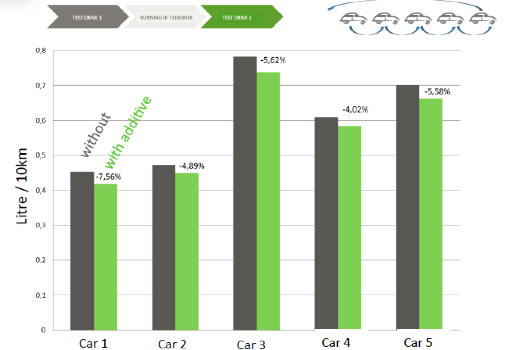
Fuel Consumption: Stationary Generators
Similar tests with two stationary generators resulted in an even higher fuel reduction with Triboron Formula in the fuel. The test with the diesel-powered portable generator included two different generators, used with or without Triboron technology, each at three different constant power outputs, each subtest 5 hours long.
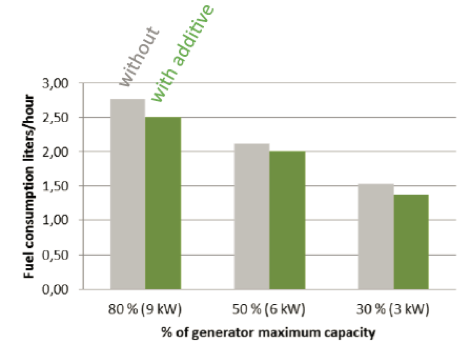
Fuel Consumption: 2-stroke Applications
Adding a single per cent of Triboron’s Formula into the fuel will result in significant reductions of the emissions of harmful carbon monoxide (CO) and hydrocarbons (HC) as well as carbon dioxide (CO2). This demonstrates the potential for contributing to improved air quality in congested urban areas with large motorbike populations.
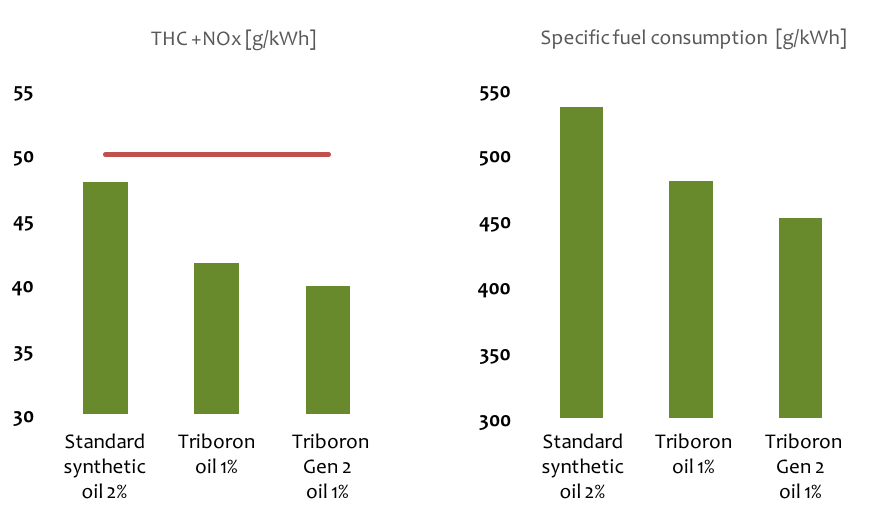
Durability
A long-term test using state-of-the-art AVL equipment in the advanced laboratory NEVS/GM covered 50,000 kilometres and resulted in a 3% reduction of fuel and CO2 emissions with Triboron Fuel Formula. The test also showed that the Triboron technology doesn’t harm or reduce the efficiency of the exhaust treatment system.
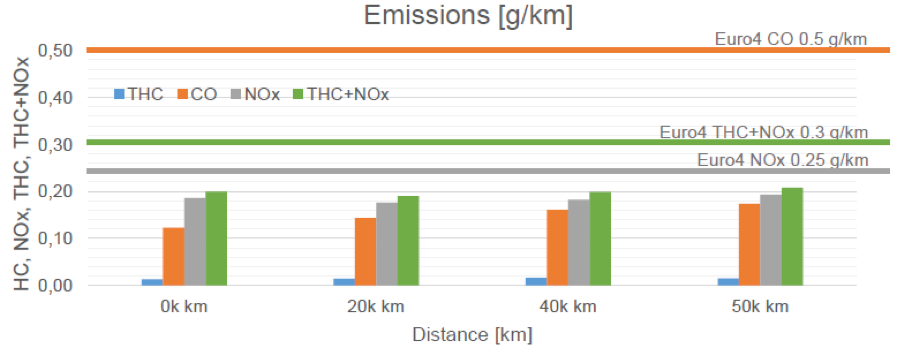
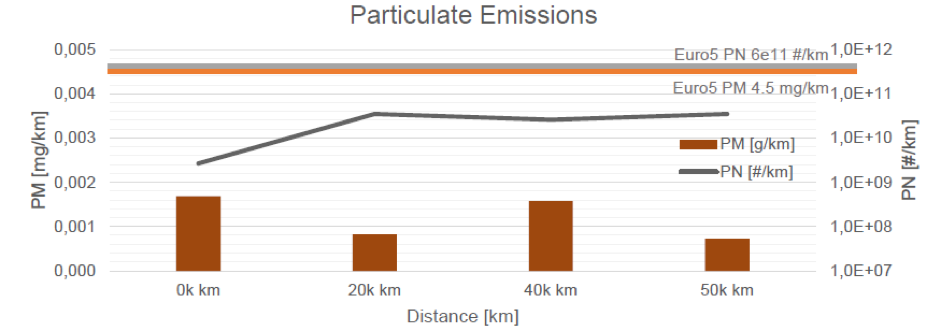
Wear
A study by Ångström Laboratory at Uppsala University resulted in less friction and wear with Triboron 2-Stroke Fuel Formula in the fuel.
Friktionsminskning
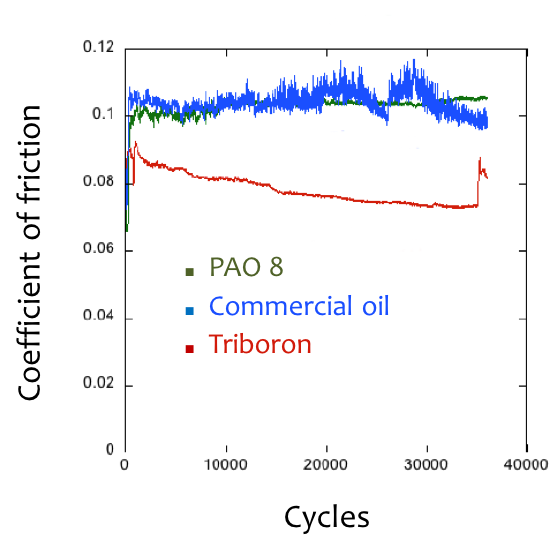
Wear Resistance

Anti-Bacterial
The review in Autobild Magazine (tested by SGS) found the Triboron Formula to be active against bacterial attack under winter storage conditions. The test showed that all five types of bacteria, yeast and mould tested were eliminated.
The Hamburg-test
Further testing provided by Technische Mikrobiologie Dr. Jutta Höffler GmbH in Hamburg 2016 provides proof that Triboron also effectively prevents the growth of Bacteria (Pseudomonas aeruginosa), Fungi/Yeast (Hormoconis resinae) and Mold (Yarrowia tropicalis). Under some circumstances their prescense is completely eliminated.
Triboron Fuel Formula was added to a diesel-fuel in three different concentrations; 1:500, 1:1000 & 1:2000, where 1:1000 is the recommended concentration regarding fuel-economy. The prescence of bacteria, svamp/yeast and mold was then measuered three times after a certain amount of days; 1, 7 and 28 days. At double the dosage, 1:500, which is recommended when having problems with bacteria, the result shows that the three microorganisms chosen for the test is completely eradicated somewhere between 8 and 28 days into testing.
Pseudomonas Aeruginosa (Bacteria)
The test shows that the most efficient way to prevent the growth of Pseudomonas Aeruginosa is to use a concentration of 1:500, after 28 days no further growth of the bacteria was seen.
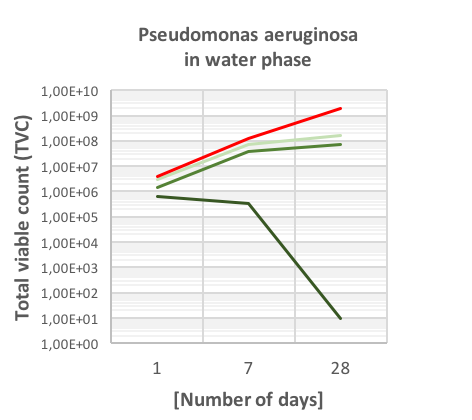

Hormoconis Resinae (Fungi/Yeast)
The test shows that both the 1:500 concentration, and the 1:1000 concentration effectively prevent the growth of Hormoconis Resinae, after 28 days no further growth of the fungi/yeast was seen.
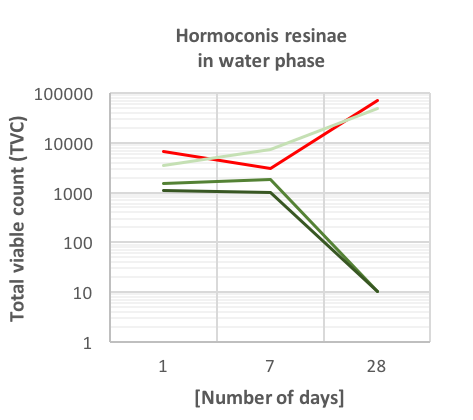

Yarrowia Tropicalis (Mold)
The test shows that all of the concentrations effectively prevent Yarrowia Tropicalis (Mold), after 28 days, no further growth was seen.
